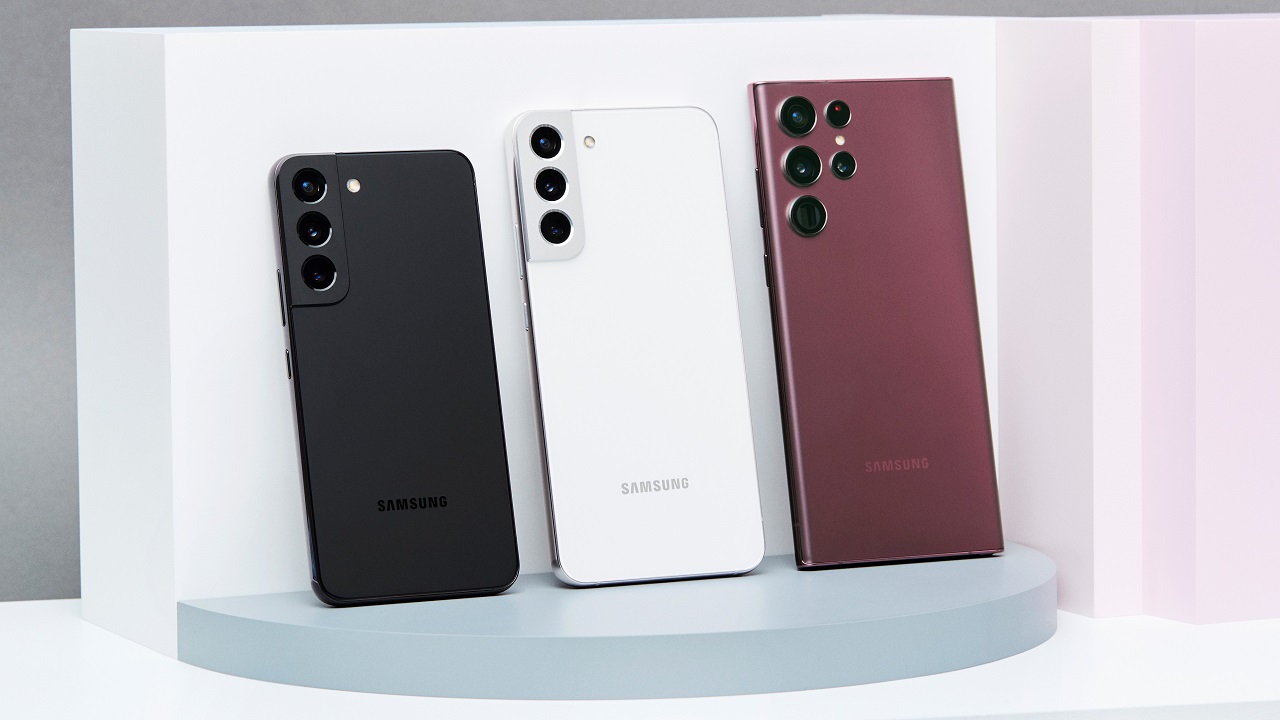Samsung Galaxy surprise announcement – I didn't see this coming
Samsung has announced an ongoing Qualcomm partnership that suggests the Galaxy S23 series will be just one variant

If you've been contemplating the idea of buying a Samsung Galaxy S23 (the rumoured but almost ensured 2023 model in the Korean giant's flagship phone series), a surprise nugget of information just dropped – and one that I didn't expect.
It's the news that Samsung has entered a partnership with Qualcomm to continue using its Snapdragon processors in the company's Galaxy devices through 2030. A full seven years, which is no small timeframe.
Now, I know what you're thinking: that's hardly a surprise. Except it is, because the already-released Galaxy S22 series, for example, arrived with both Qualcomm and Exynos formats, depending on the region of release.
Exynos 2200 is Samsung's own chipset and, again in the S22 series, it was found in European and Asian region handsets – which is a large portion of the company's production. In the USA, however, it was over to Qualcomm to deliver instead with its Snapdragon 8 Gen 1 chip.
Qualcomm Snapdragon vs Samsung Exynos

Now, however, it appears that Qualcomm is going to become the sole provider, meaning Galaxy devices such as the S23 series will feature the rumoured Snapdragon 8 Gen 2 platform for a 2023 launch. And there will be no regional differences in launches in the same way as before.
To quote a jump-out line from Qualcomm's press release: "Samsung also agreed to expand their collaboration with Snapdragon platforms for future premium Samsung Galaxy products, including smartphones."
I think that'll get a lot of people talking and, ultimately, make plenty of people happy. There was some discussion around Exynos is the S22 series not delivering so strongly on the camera processing, for example, as the Exynos 2200 just isn't as powerful as Snapdragon 8 Gen 1.
Get all the latest news, reviews, deals and buying guides on gorgeous tech, home and active products from the T3 experts
It's a change I certainly didn't expect though. If anything I had anticipated that Samsung would ramp up Exynos production to appear in more of its handsets. Not to mention MediaTek's rise up the ranks (with Dimensity 9000 and other high-end chipsets proving their worth in recent years) being a consideration.
So does it make sense? After all, Qualcomm utilised Samsung Foundry to build its 4nm Snapdragon 8 Gen 1 chip, but reportedly (although not confirmed) it will not be doing so for Gen 2, instead returning to TSMC for production. That could have indeed influenced discussions.
Not that it's an undesirable outcome: I, for one, am keen to see what a worldwide Galaxy S23 launch running on Qualcomm's latest will be able to deliver.

Mike is T3's Tech Editor. He's been writing about consumer technology for 15 years and his beat covers phones – of which he's seen hundreds of handsets over the years – laptops, gaming, TV & audio, and more. There's little consumer tech he's not had a hand at trying, and with extensive commissioning and editing experience, he knows the industry inside out. As the former Reviews Editor at Pocket-lint for 10 years where he furthered his knowledge and expertise, whilst writing about literally thousands of products, he's also provided work for publications such as Wired, The Guardian, Metro, and more.
